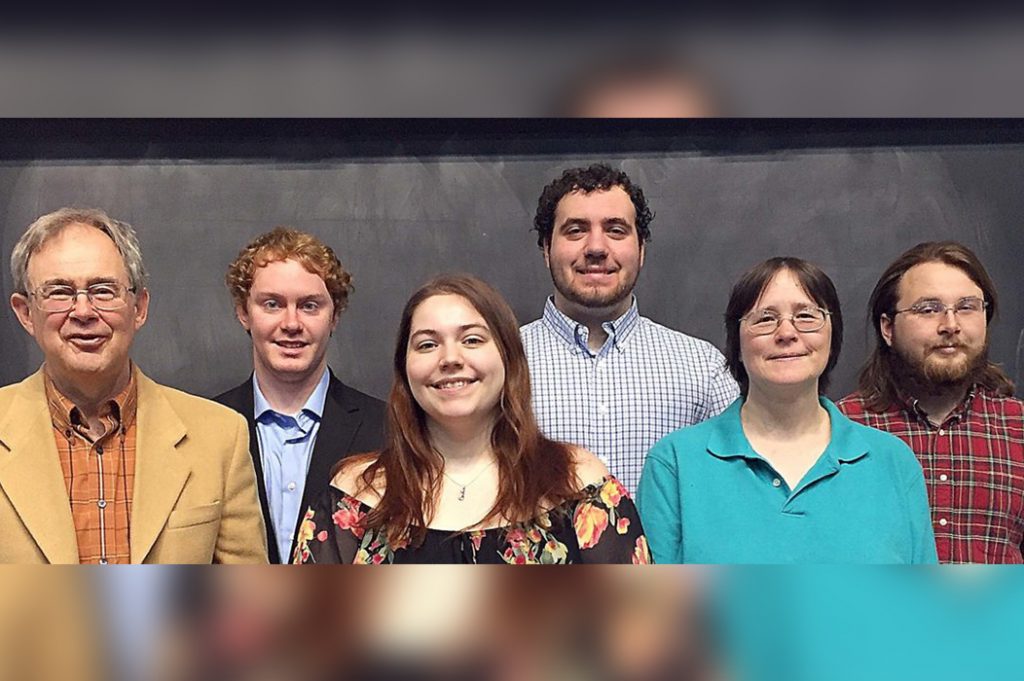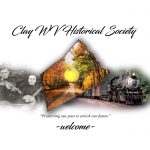Submitted photo West Virginia Wesleyan College’s Department of Physics and Engineering has been successful at the recent West Virginia Space Grant Consortium, a program sponsored by the National Aeronautics and Space Administration. Shown here are Department Chair Dr. Albert Popson, John Harvey, Angela Meyer, Connor Farrell, Dr. Tracey DeLaney and Ethan Randolph. Not pictured is Paige Stinson.
Posted: April 17, 2018 | Source: The InterMountain
BUCKHANNON — West Virginia Wesleyan College’s Department of Physics and Engineering was successful at the April meeting of the West Virginia Space Grant Consortium, a program sponsored by the National Aeronautics and Space Administration.
Outcomes were announced by physics professor Dr. Joseph Wiest, who serves on the WVSGC Board of Directors.
Student winners included Paige Stinson, a junior from Salem, Virginia, who was awarded a research fellowship starting this summer to probe the nucleus with tunable lasers; Ethan Randolph, a sophomore from Martinsburg, who will build a 10-year battery, with no need for recharging, using isotopes that emit electrons designed to be used in a remote location such as the Arctic, a planet or moon.
In addition, John Harvey, a sophomore from Cross Lanes, and Conner Farrell, a sophomore from Huntington, will help develop a plasma physics laboratory under WVWC faculty. In addition, the department received funding for 11 research undergraduate scholarships and faculty research enhancement awards.
Angela Meyer, a senior from Elkview, gave a presentation on last year’s project entitled Science in the Park with Dr. Tracey DeLaney, assistant professor of physics. As a result, Meyer was presented with an offer for a summer internship at the Clay Center in their growing science museum.
The West Virginia Space Grant Consortium is a NASA-sponsored organization consisting of 12 West Virginia academic institutions and eight corporate and scientific partners. It is dedicated to building research infrastructure and promoting science, technology, engineering and math education in West Virginia. WVSGC’s primary focus is on research, collaborations with high-technology industries, student fellowships as well as K-12 and public outreach programs.
Additional information about the WVSGC is available at http://www.wvspacegrant.org.
More information on the WVWC’s Department of Physics and Engineering is available by visiting www.wvwc.edu.








